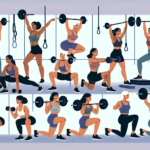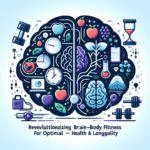In today’s world, sustainability has become a crucial topic of discussion, especially when it comes to our food choices. With the growing concern over climate change and environmental degradation, many people are looking for ways to eat more sustainably. But with so much information out there, it can be overwhelming to know where to start.
According to a recent article by Women’s Health, one doctor has shared the #1 tip to help you eat more sustainably. Dr. Sarah Ballantyne, a medical doctor and New York Times bestselling author, believes that the key to sustainable eating lies in focusing on whole, nutrient-dense foods.
Dr. Ballantyne explains that by choosing whole foods that are minimally processed, you can not only improve your health but also reduce your environmental impact. This is because whole foods require fewer resources to produce and are often less wasteful than processed foods.
One of the main reasons why whole foods are more sustainable is because they have a lower carbon footprint. Processed foods, on the other hand, often require more energy and resources to produce, package, and transport. By opting for whole foods like fruits, vegetables, whole grains, and lean proteins, you can significantly reduce your carbon footprint and help protect the environment.
In addition to being more sustainable, whole foods also offer numerous health benefits. They are rich in essential nutrients like vitamins, minerals, and antioxidants, which are important for overall health and well-being. By incorporating more whole foods into your diet, you can improve your energy levels, support your immune system, and reduce your risk of chronic diseases.
Dr. Ballantyne also emphasizes the importance of supporting local farmers and producers. By buying locally sourced foods, you can reduce the environmental impact of transportation and support small-scale farmers in your community. This not only helps to strengthen the local economy but also promotes sustainable farming practices.
In conclusion, the #1 tip to help you eat more sustainably, according to Dr. Sarah Ballantyne, is to focus on whole, nutrient-dense foods. By choosing whole foods over processed foods, you can reduce your carbon footprint, support your health, and contribute to a more sustainable food system. So next time you’re at the grocery store, remember to fill your cart with fresh fruits, vegetables, whole grains, and lean proteins – your body and the planet will thank you.















